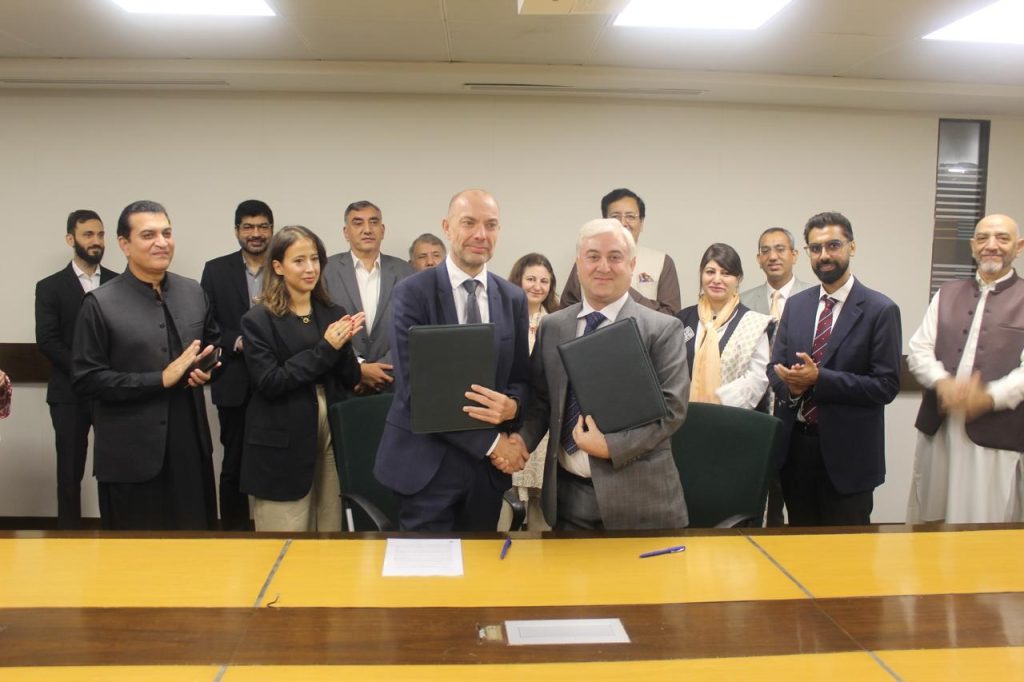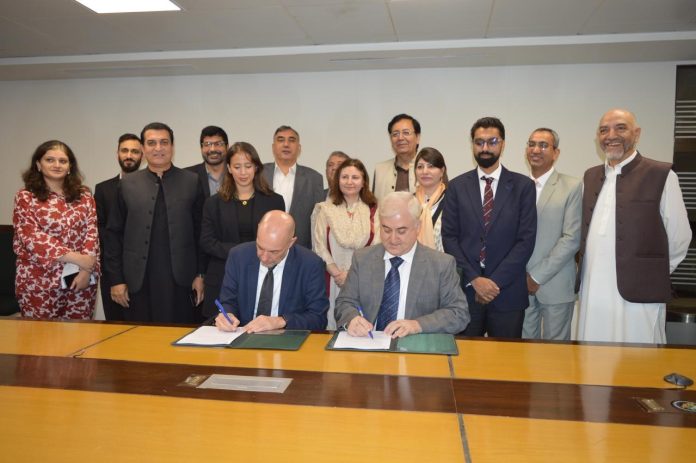Speaking at the occasion, Jakob Linulf, Ambassador of Denmark shared, “The province of Sindh has a diverse and unique climate profile, ranging from drought prone interior districts, desert landscapes, hills, to long coastal areas spreading across 330 kilometres from the borders of India to the borders of Balochistan
DNA
Islamabad, 27 September 2024: The Aga Khan Foundation, Pakistan and the Embassy of Denmark in Islamabad today signed an agreement to improve coastal communities’ resilience to climate change and mitigate climate risks in Pakistan.
The project “Sindh Coastal Resilience Integrated Programme (SCRIP)” focusses on tackling climate vulnerability in coastal districts where the Aga Khan Development Network (AKDN)’s existing presence on the ground and strong capacity can be leveraged. Through a human-centred approach and partnering closely with government and local civil society actors and knowledge institutions, it will deploy cost-effective and locally relevant solutions to improve resilience to climate change and enhance fragile ecosystems that are critical to people’s lives and sustainable development. The project will build on AKF’s global Indian Ocean Coastal Regeneration Initiative which has been designed as a response to the converging crises of climate change, deforestation and biodiversity loss that threaten the earth’s capacity to recuperate and regenerate.

The partnership agreement was signed by H.E. Jakob Linulf, Ambassador of Denmark, and Akhtar Iqbal, CEO, Aga Khan Foundation, Pakistan (AKF(Pakistan)). The signing ceremony was also attended by other senior representatives from the Danish Embassy and the Aga Khan Development Network, Pakistan.
Speaking at the occasion, Jakob Linulf, Ambassador of Denmark shared, “The province of Sindh has a diverse and unique climate profile, ranging from drought prone interior districts, desert landscapes, hills, to long coastal areas spreading across 330 kilometres from the borders of India to the borders of Balochistan. With such rich and fragile ecosystems, the impacts of climate change are as varied – from droughts and heatwaves impacting agricultural production to severe flooding leading to fragile socio-economic conditions and livelihoods. The project aims to respond to these challenges, focusing on tackling climate vulnerability in coastal districts along the Arabian Sea coast”.
Akhtar Iqbal, CEO AKF, Pakistan noted that AKF is pleased to collaborate with the Embassy of Denmark on a critical component as communities in Pakistan have been experiencing firsthand the impacts of climate change and environmental degradation in Pakistan. Aga Khan Foundation and agencies of the Aga Khan Development Network have been fully committed to doing our part for responsible stewardship of the environment. The Sindh Coastal Resilience Integrated Programme encompasses a science-based ecosystem approach and builds on the premise that in order to address climate change and ensure environmental sustainability, it is essential to engage communities and by doing so, improving the overall quality of life and economic opportunities.”
The project will be implemented by the AKDN agencies including the the Aga Khan Agency for Habitat, Pakistan (AKAHP) and the Aga Khan Rural Support Programme (AKRSP).

















